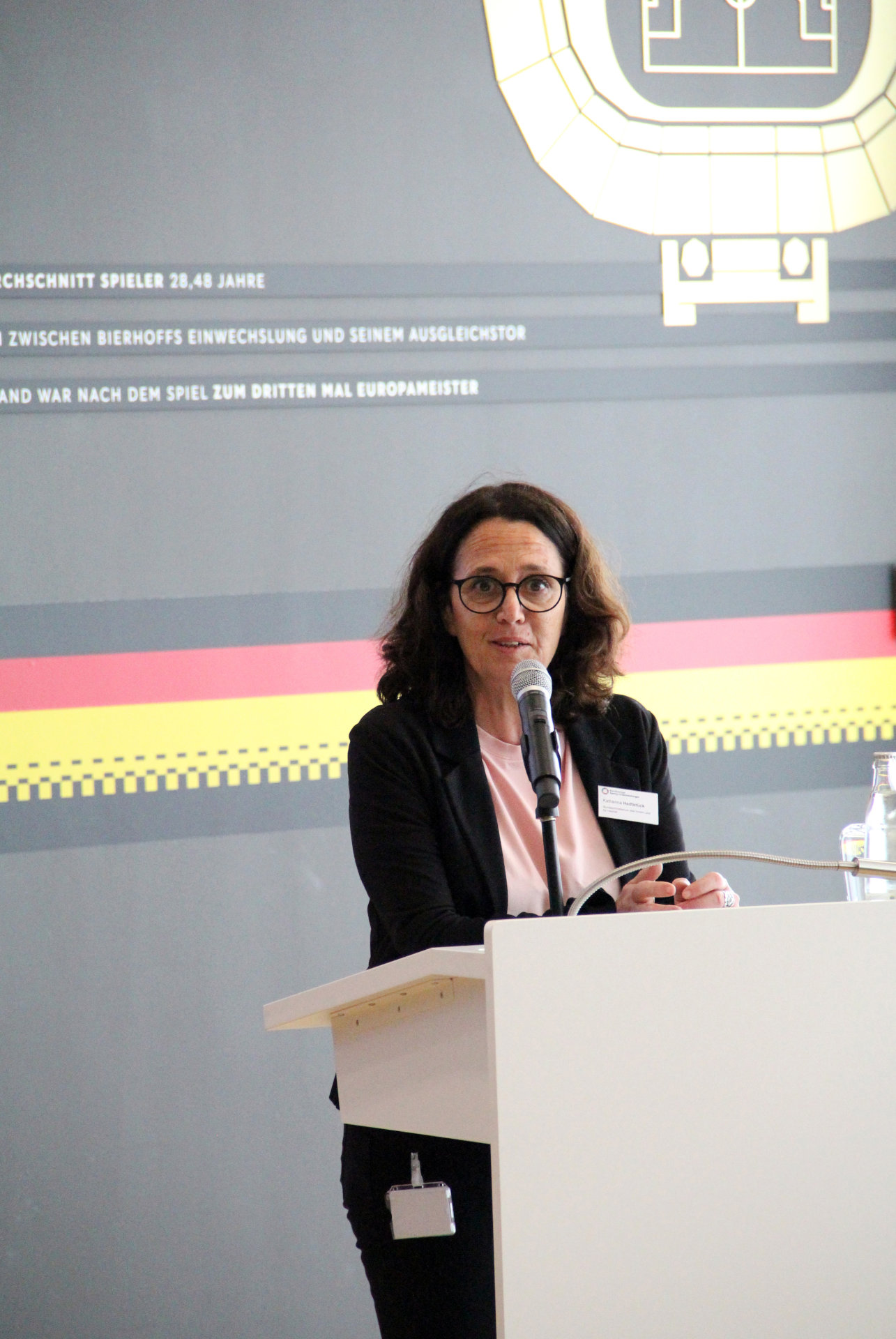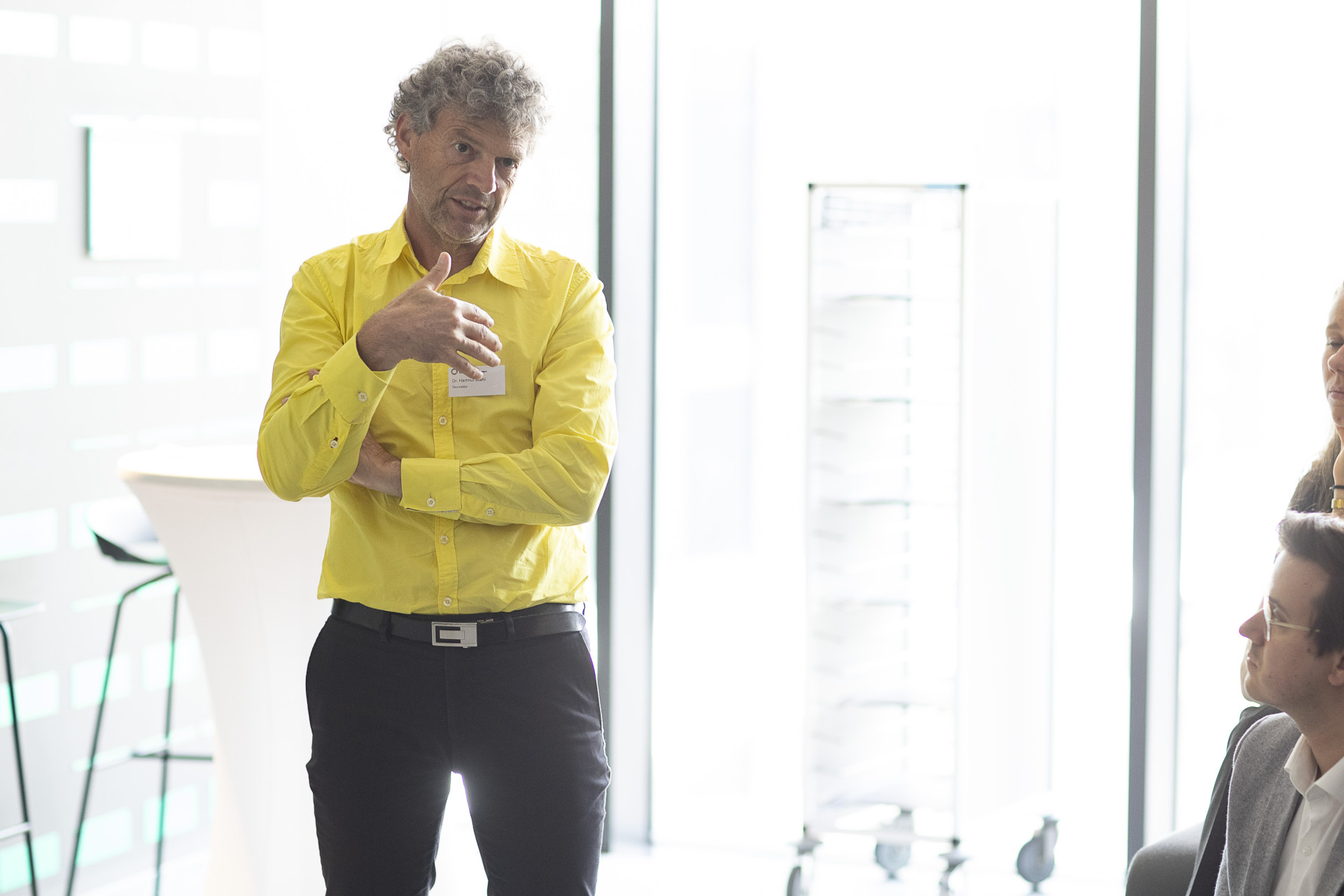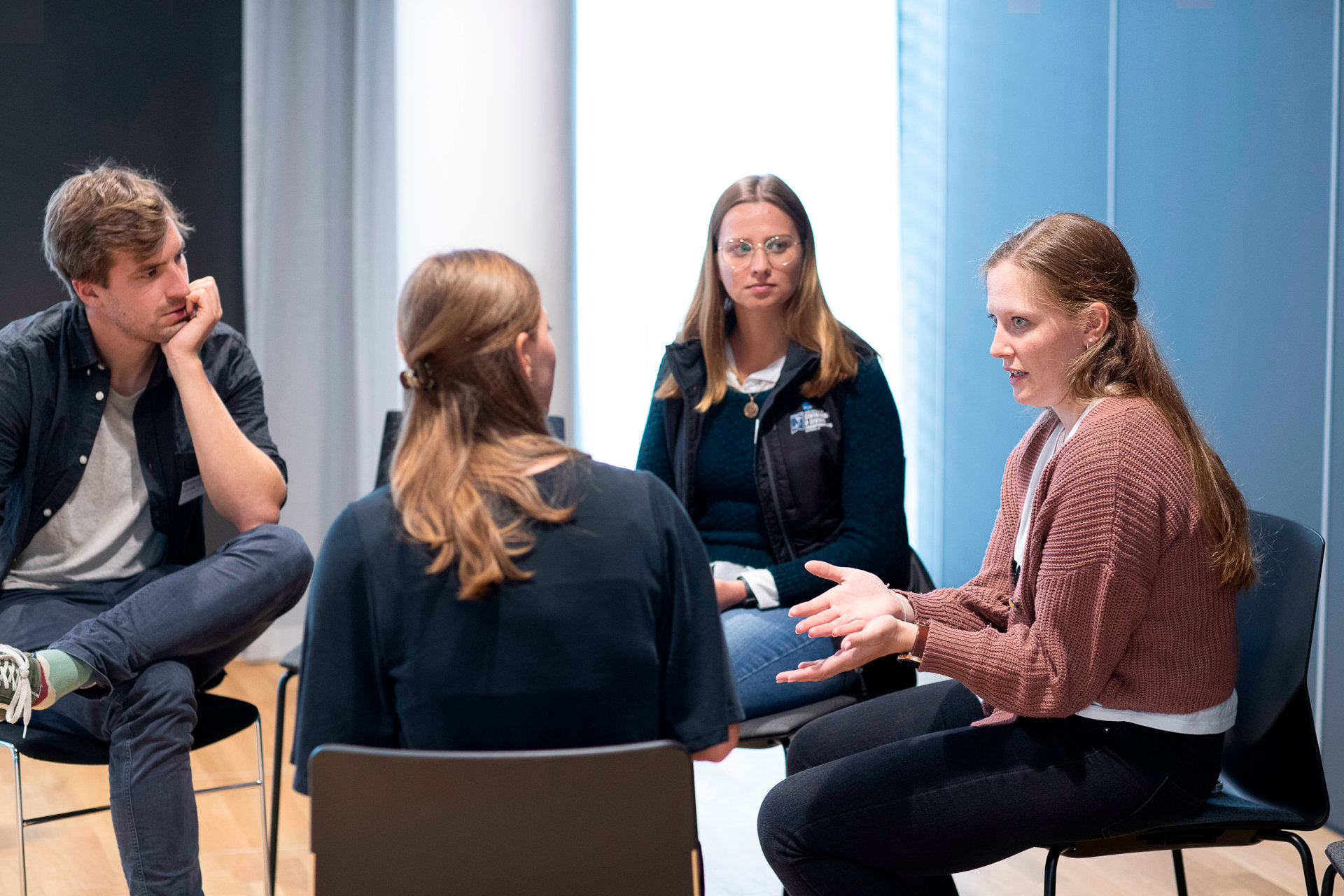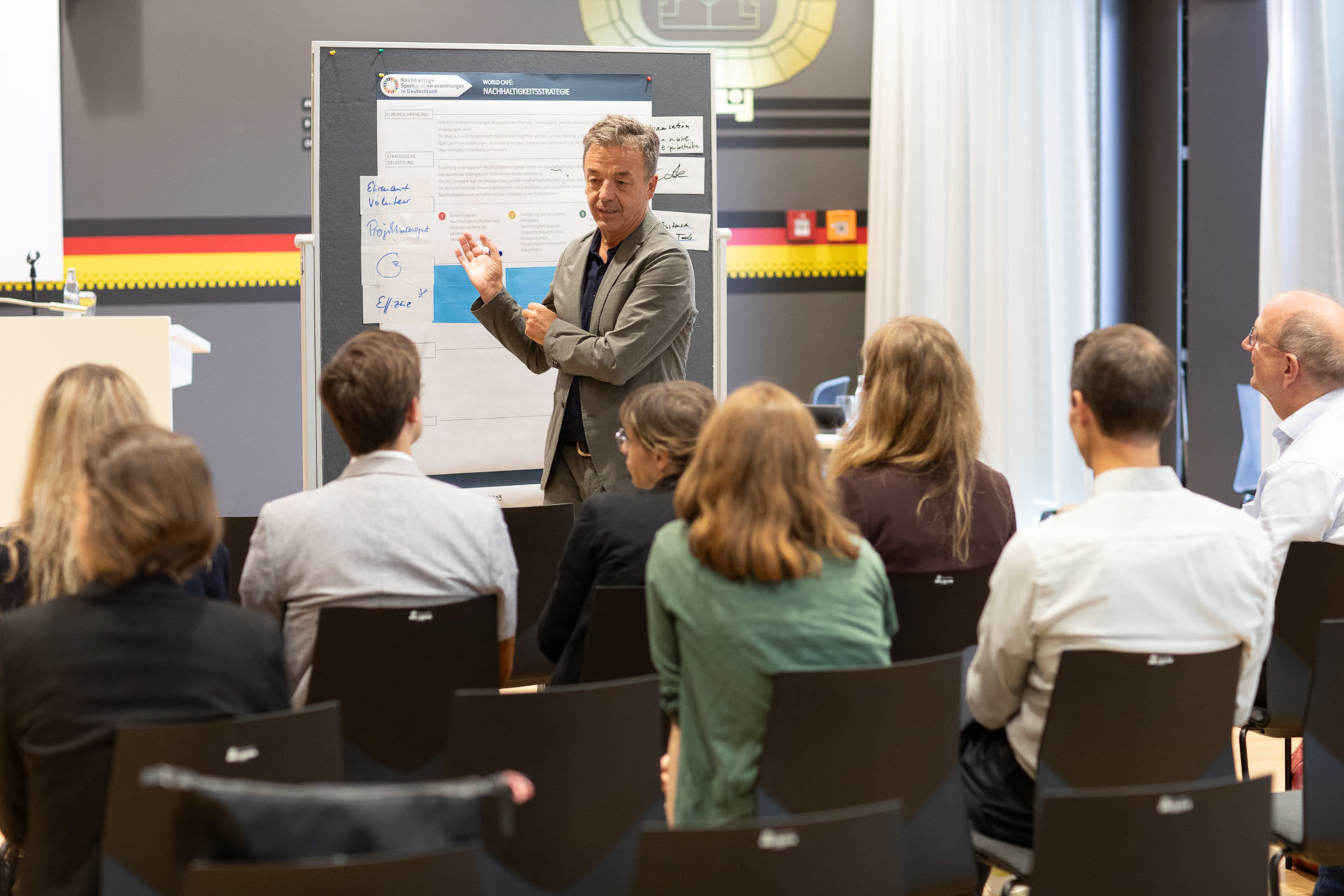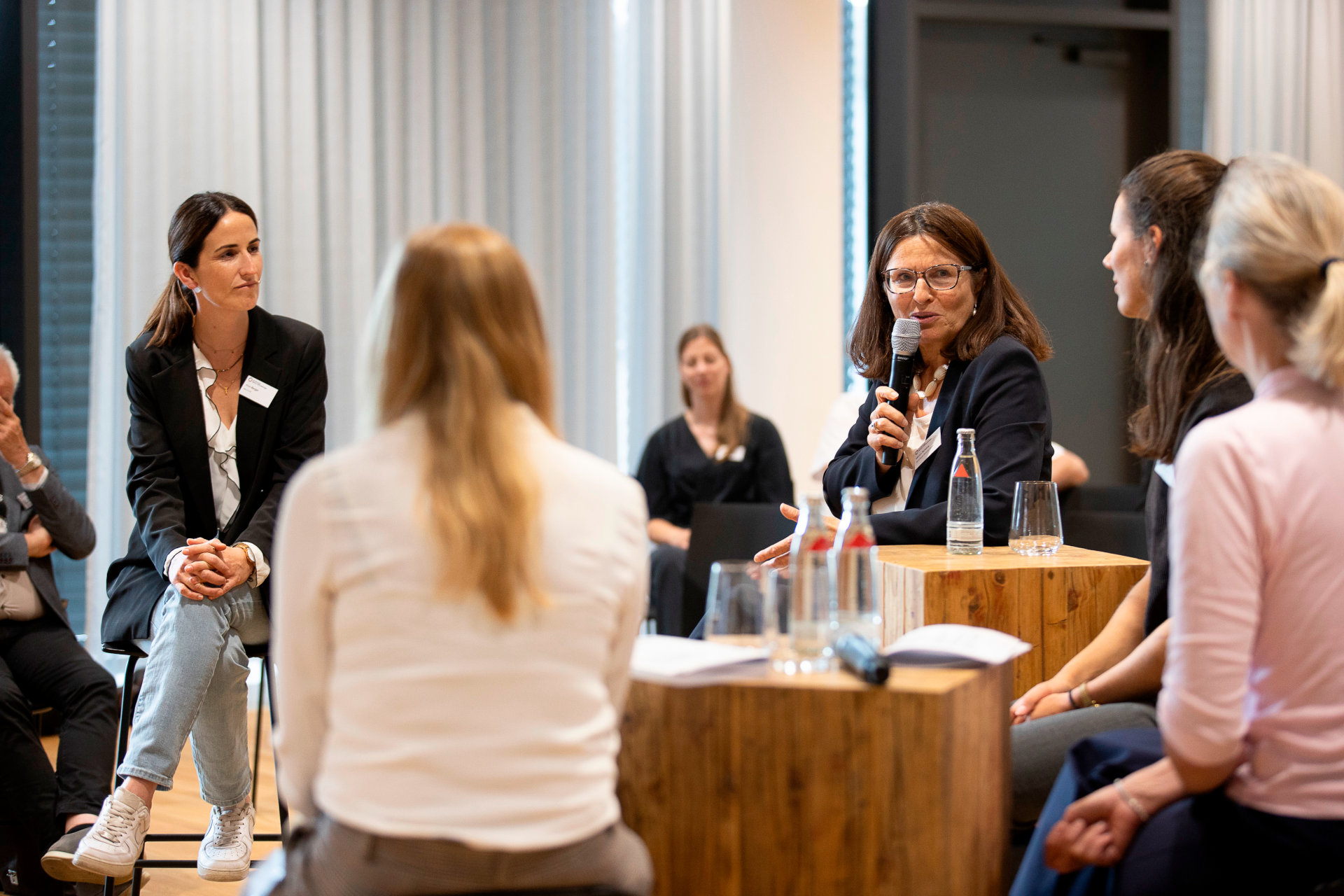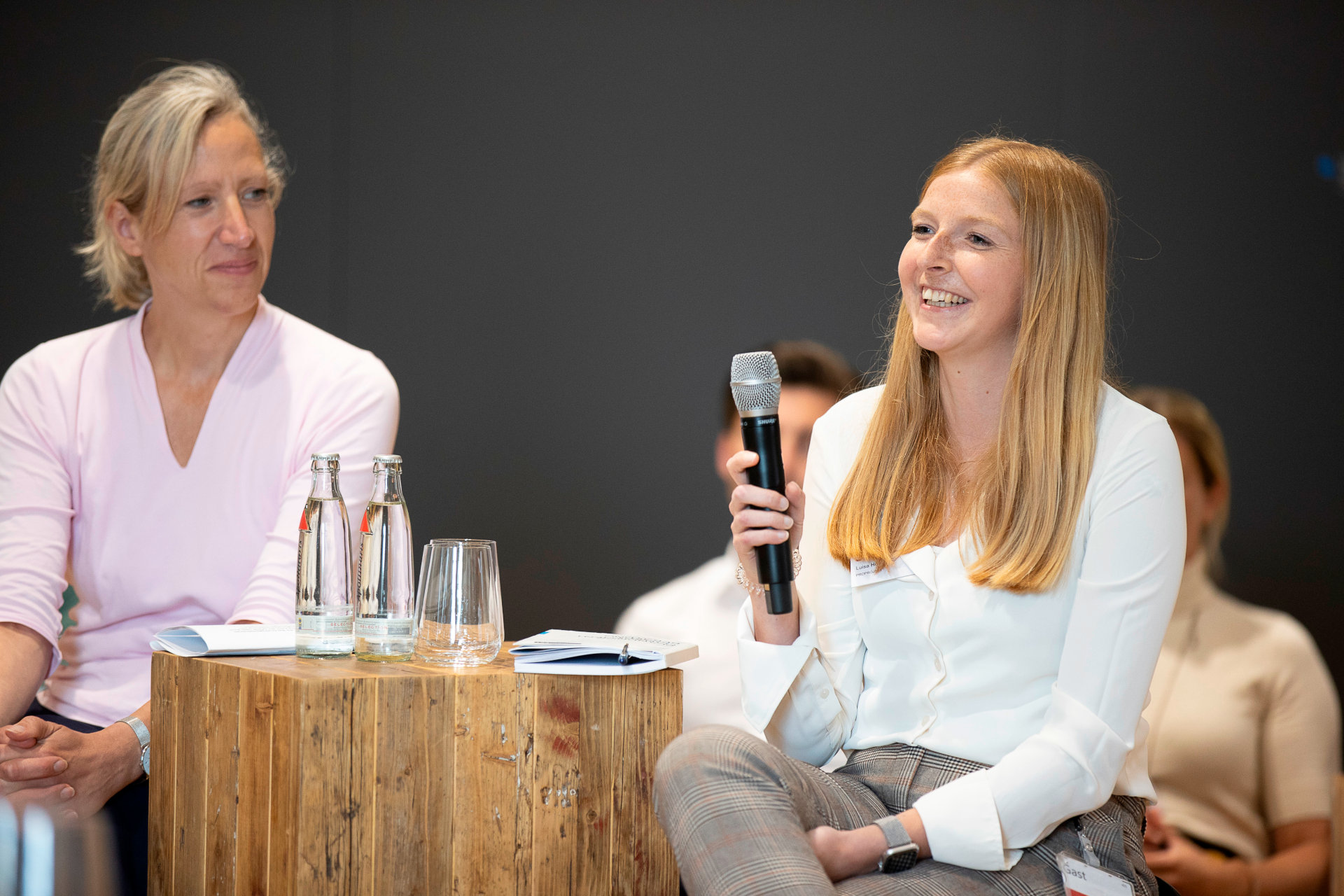On Wednesday, July 5, 2023, the symposium “The Future of Sustainable Major Sport Events in Germany – Ecologically Responsible, Socially Fair and Economically Sustainable” took place. The event attracted more than 100 participants from sports, federal and state authorities, municipalities, science, civil society and other stakeholder groups. The aim was to discuss the first results of the project “Sustainable Major Sport Events in Germany” and to raise awareness of the project and the topic among a wide range of stakeholders. At the same time, the symposium offered all participants a platform for active participation.
In their welcoming speech, Katharina Hedtstück from the Federal Ministry of the Interior and Community and Michael Kracht from the Federal Ministry for the Environment, Nature Conservation, Nuclear Safety and Consumer Protection, as representatives of the sponsors, emphasised the importance of the project. They expressed the German government’s intention to use this project to promote the sustainability of sport events of all sizes in a holistic manner. As a representative of organised sports and the funding recipients, Michaela Röhrbein, German Olympic Sports Confederation (DOSB), welcomed the participants. She referred to the project’s opportunities for the sustainable development of sport events, but also to the resources that sport in Germany would need to achieve this.
THE PROJECT TEAM INTRODUCES ITS MEMBERS AND ITS GOALS
The project was presented by the project leaders Christian Siegel, DOSB, and Prof. Dr. Ralf Roth, German Sport University Cologne. They provided insights on the origins of the project as well as previous findings in the development of sustainability criteria in the three sustainability dimensions of ecology & environment, social and economic.
“After an intensive eight months of project work, we can draw a positive interim balance today and are pleased to be able to present initial results to a broad audience. By achieving our ambitious project goals, we will be able to set ground-breaking standards for the sustainability of major sport events in Germany,” Christian Siegel announced.
Prof. Dr. Ralf Roth explained the overall technical concept and presented the first results for discussion. In this context, the great variety of sporting events poses a challenge. “In addition to the league operations of the team sports, there are far more than 200 major sport events per year in Germany! From the Ski World Cup to wheelchair basketball to the European Handball Championships, there is an enormous range of sustainability requirements. It is therefore important that our scientific findings reach and are accepted by the people who are going to implement them. That’s another reason we’ve come together here today.”
FROM EMISSIONS TO DIVERSITY – IMPULSES FROM SCIENCE
In one of three scientific inputs, Dr. Hartmut Stahl from project partner Öko-Institut e. V. addressed the emission of greenhouse gases in the context of major sport events. He made it clear that the aim must be to avoid and reduce emissions, increase energy efficiency and replace fossil energy. “We have to do our homework here on site, which means saving everything that is feasible in terms of emissions and not relying on climate compensation as a cure-all,” said Dr. Hartmut Stahl.
Afterwards, Gitta Axmann, research associate at the Institute for Sociology of Sport and Gender Studies at the German Sport University Cologne, expressed the importance of diversity, variety and participation in major sport events. With convincing words, she made it clear that it is important to think about the needs of groups of people who are often neglected and to break down barriers. In doing so, she pointed out that these barriers were not only physical in nature, but that other obstacles could also limit participation in sport events.
Prof. Dr. Tim Pawlowski, Head of the Department of Sports Economics, Sport Management and Sport Journalism at the Eberhard Karls University of Tübingen, succeeded in breaking down the complex topic of the sustainable economic development of major sports events. In particular, he addressed the possible economic benefits, potentials and risks of sport events and their spatially varying characteristics. The benefits and potentials are not so much a direct impulse for the economy, but can be seen more intangibly, for example in the promotion of national identification, the contribution to international understanding or generally in an increased feeling of happiness among the participants.
EXPERTISE OF THE PARTICIPANTS INTEGRATED ACTIVELY
As the symposium progressed, participants were able to actively share their experiences and different approaches. In World Café formats, the project team presented specific ideas on fields of action to those present and asked for their opinions. The fields of action are divided structurally into “control areas” and “focus areas”. The control areas or “sustainability management” deal with strategic, general topics and are preceded by the focus areas, which are dedicated to topics from the three sustainability dimensions.
The topics presented at the symposium included the areas of sustainability strategy and sustainability communication & monitoring in sustainability management and diversity & participation, climate, financing & cost stability, and sustainable sports & club development in the focus areas. In each case, the discussion focused on the specific goals to be set and the criteria and indicators to be used to measure their achievement.
“IT TAKES ALL OF US!” – WHAT MAKES SUSTAINABILITY MANAGEMENT SUCCESSFUL
Sustainability, regardless of the organisation, will only be successful if it is addressed structurally. The project team has therefore prefixed the focus areas with a “control area” or elements for sustainability management. In addition to the aforementioned sustainability strategy topics and sustainability communication & monitoring, the project team has identified the following areas: Responsibilities, Participation & Stakeholders, Procurement & Contracting, and Financing of Sustainability Services.
How these areas can be implemented in practice by organisers in a structured way was the topic of a lively fishbowl discussion at the end of the symposium. The participants in the discussion offered exciting insights into the organisation of skiing and sports events, from the European Championships in Munich in 2022 to the Special Olympics World Games in the summer of 2023.
As the financing of sustainability services was named as the most challenging aspect of sustainability management in a survey among the participants of the symposium, this was the first topic to be discussed. Among other things, the participants emphasised the importance of considering sustainability services in the planning phase and budgeting for them appropriately. In order to meet the financial challenges, hurdles in the use of subsidies for large sport events should be removed.
An important success factor is to assign specific responsibilities to staff members for the implementation of the measures. Each on the organising committee should support the idea of sustainability, with executives in particular acting as role models and demonstrating that sustainability is deeply embedded in the organisational culture.
A free chair for contributions from the audience was actively used by the participants, allowing further aspects and insights from practice to be contributed.
The detailed program of the symposium with the names of all participants can be found here.

